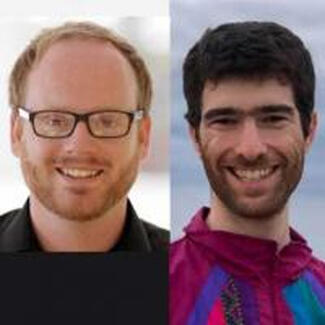
Gordon Wetzstein, Isaac Kauvar (EE PhD candidate), et al create technique that captures neural activity
Their ‘COSMOS’ system can record motor control and decision making, sensory perception, and is a useful technique to evaluate effectiveness of psychiatric drugs.
Professor Gordon Wetzstein and first authors Isaac Kauvar (EE PhD candidate) and postdoctoral researcher Tim Machado, have developed an optical technique that can simultaneously record the activity of neurons spread across the entire top surface of a mouse's cerebral cortex, a key part of the brain involved in making decisions. Their article, "Cortical Observation by Synchronous Multifocal Optical Sampling Reveals Widespread Population Encoding of Actions" was published in the journal Neuron.
The researchers call their system Cortical Observation by Synchronous Multifocal Optical Sampling, or COSMOS. In addition to studying motor control and decision making, the team is also using COSMOS to study sensory perception in animals and as a screening technique to develop better psychiatric drugs.
The prototype COSMOS system is relatively simple to build and costs less than $50,000, which is hundreds of thousands of dollars cheaper than other optical systems for recording neural population dynamics. To encourage further adoption and development of the technique, the authors have built a website with instructions to help other researchers build their own COSMOS systems.
The bifocal microscope uses a single camera to capture two movies of neural activity at the same time: one focused on the sides of the brain, and the other focused on the middle, to provide a side-by-side view shown in a video. The researchers then computationally extract signals – reflecting the timing, intensity and duration of when neurons fire – from both of these movies to obtain a comprehensive measurement of neural activity across the whole surface.
Excerpted from Stanford News, "Stanford researchers develop an inexpensive technique to show how decisions light up the brain", June 2, 2020.

"COSMOS Reveals Widespread Population Encoding of Actions", first authors Isaac Kauvar, EE PhD candidate (photo credit: Daphna Spivack) and Tim Machado, Bioengineering postdoctoral researcher.